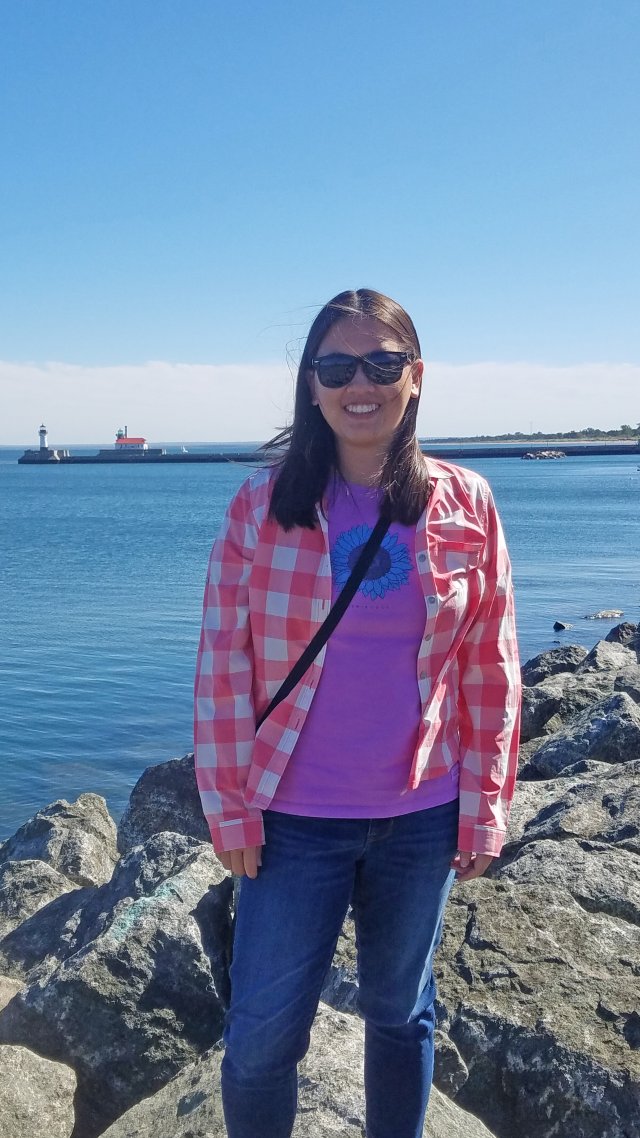Meet EPA Researcher Amber Sample, MS

Amber is an ORISE (Oak Ridge Institute for Science and Education) participant with the Great Lakes National Program office. She is interested in understanding people’s perspective and behaviors toward natural resources and how it relates to protection and conservation. The research she is currently working on is with the Pickle Pond restoration project and understanding the local community’s recreational activities pre, during and post restoration.
Tell us about your background.
I earned my bachelor’s degree in zoology at Ohio Wesleyan University in Delaware, Ohio. After that I completed my master’s degree in conservation leadership at Colorado State University. Since 2020, I have been an ORISE participant in EPA’s Great Lakes National Program Office supporting work in areas of concern and in the Science, Monitoring, Reporting (SMER) section.
When did you first know you wanted to be a scientist?
From a young age I knew I would be doing something in biology. After taking a class trip to the Galapagos Islands while in college, I knew I wanted to work in conservation of natural resources and understanding other people’s perspectives of nature. I always thought scientists only worked in labs, however I get to work with the community, travel to new places and collaborate with other great scientists.
What do you like most about your research?
The thing I enjoy most about my research is being able to learn about I enjoy my research because I get to travel to new places and meet new people. No place is the same and there is often more than one solution to every case.
How does your science matter?
I think what I am doing will contribute to improving the quality of life in communities. By understanding how people value the environment, I can help people be more engaged in conserving it.
If you weren’t a scientist, what would you be doing?
Probably trying to find another way to fund my traveling habit around the world.
What advice would you give a student interested in a career in science?
To get involved and get as much experience as possible in real world science through volunteering and internships. It’s a great experience to apply what you have learned in school but also to learn new skills relevant to the specific field. Be curious, ask questions and never stop learning.
What’s your role in the Pickle Pond research project?
My role is to review and classify the trail camera images. Additionally, I help to code the interviews which will help us evaluate the community’s perspective of the area.
Editor's Note: The opinions expressed herein are those of the researcher alone. EPA does not endorse the opinions or positions expressed.
